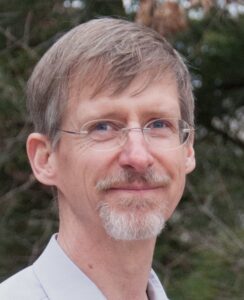 On Penn State University Week: How do we make students more active in their learning?
On Penn State University Week: How do we make students more active in their learning?
Bill Goffe, teaching professor of economics, explores this question.
Bill Goffe (PhD, University of North Carolina at Chapel Hill) is a Teaching Professor at Penn State. He is an associate editor of the Journal of Economic Education and recently rotated off the American Economic Association’s Committee on Economic Education. At Penn State he helps run two faculty learning communities and he has published the Journal of Economic Perspectives, and the Journal of Econometrics, and the Journal of Economic Education. The paper most related to The Academic
Minute is “Beyond the Flipped Class: The Impact of Research-Based Teaching Methods in a Macroeconomics Principles Class,” which was authored with Austin Boyle and was published in the American Economic Association Papers and Proceedings.
Deliberate Practice and Teaching
Many instructors across higher education argue that “active learning” leads to better outcomes than the instructor continually talking. Yet, the phrase “active learning” is vague – how might one thoughtfully implement it?
One approach is “deliberate practice,” which comes from the pathbreaking work of the cognitive scientist Anders Ericsson, who studied how experts become experts. They achieved their expertise via deliberate practice, which is attempting challenging tasks, receiving timely and accurate feedback, and that feedback helps the trainee expand their “mental model” of the topic.
This should ring true for instructors. They might want their students to analyze medieval poetry, write a strong opening paragraph, or design a bridge. How best to learn to do these things than to try and then receive feedback? Obviously, the tasks must be carefully scaffolded and calibrated. Deliberate practice can be implemented in many ways, from conceptual clicker questions in a large introductory class that uses “Peer Instruction,” which my research focuses on, to group projects in small, senior-level class.
A leading researcher on employing deliberate practice in teaching is the physicist (and Nobel Laureate) Carl Wieman. In a series of papers, he and his colleagues have demonstrated large learning gains in courses employing it. My research has come to a similar conclusion.
With deliberate practice the joy of teaching shifts from continually talking to students to designing challenging activities where you watch your students learn.

Comments
One response to “Bill Goffe, Penn State University – Deliberate Practice and Teaching”